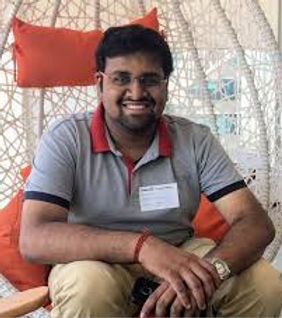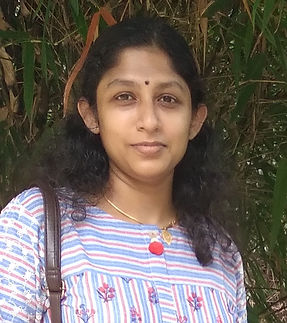

Responsible Artificial Intelligence
CHENNAI 2024
1st International Workshop on Responsible AI for Healthcare and Net Zero (Hybrid)
Date
October 16-17, 2024
Venue
TTJ auditorium, IIT Madras, Chennai, India




Motivation and objectives
Responsible AI efforts so far have been criticised to be ‘western focussed’ and ignoring the unique context of developing and under-developed countries. This first international workshop will uniquely explore these imbalances by bringing researchers from around the world to discuss, debate and present cutting-edge research in this growing research area. The workshop's primary aim is to advance the understanding and implementation of Responsible AI in the fields of Healthcare and Net Zero. The objectives will be to share cutting-edge research, discuss responsible AI frameworks, and foster collaboration among researchers, practitioners, and policymakers.

Key dates
Submission Deadline
September 15, 2024 (Revised)
Notification of Acceptance
September 22, 2024 (Revised)
Workshop Date
October 16-17, 2024
Registration
We also welcome attendance at the workshop without any paper submission. Registration is required and is free for all.
Organisers (workshop chairs)

Day 1 Programme: Responsible AI for Healthcare
The format and focus of each session are as follows (Click here to download Agenda):
You may have heard about the red alert issued in Chennai due to heavy rainfall. Unfortunately, following a government notice, IIT Madras (the host institute) has been asked to close tomorrow. To ensure everyone’s safety, we have made the difficult decision to move tomorrow’s workshop day (16th October) online only. The event program and timings will remain exactly the same.
Please note: We have not yet decided on the format for the workshop on 17th October. We will determine whether it will run as a fully hybrid or online-only event and will inform you of the decision as soon as possible.
Note: All times in Indian Standard Time/IST
09:00-09:30
Registration (Venue: TTJ Auditorium, ICSR)
09:30-10:15
Welcome and Opening remarks: Professor Balaraman Ravindran and Professor Dhaval Thakker
10:15-11:05
Keynote 1: Raghu Dharmaraju (AI, Data, Robotics for Impact | Health, Language, Climate)
(40 mins talk, 10 mins Q & A)
(Chair: Professor Balaraman Ravindran)
11:05-11:40
Coffee break (Venue: Annexe Dining Hall, ICSR)
11:40-12:55
Oral presentation X 5 (10 mins for presentation + 5 mins for Q & A)
(Chair: Professor Kevin Pimbblet)
(Venue: TTJ Auditorium, ICSR)
-
Title: AI-Driven Companionship in Addressing Loneliness: Ensuring Ethical and Responsible Use of LLMs
Authors: Joel Samuel Raj A
-
Title: Explainable AI Models for Prediction and Interpretation of Preterm Births
Authors: Jashmin Swain, Krishna Sameer and Siba K. Udgata
-
Title: Enhancing Retinoblastoma Diagnosis: A Comparative Analysis of Preprocessing Techniques and Transfer Learning Models with LIME Interpretation
Authors: Pranav Sharma, N. Meenachi Madurai and M Kanaga
-
Title: A Responsible AI Perspective to implementing Generative AI in Personalized Healthcare: Implications, Challenges and Future Directions
Authors: Temitayo Fagbola, Aarzoo Dhiman, Julius Mboli and Bhupesh Mishra
-
Title: Neuro Symbolic AI and Large Language Models: A Survey
Authors: Maneeha Rani, Bhupesh Kumar Mishra, Dhavalkumar Thakker and Will Jones
12:55-13:15
Invited Talks Session-I (chair: Professor Dhaval Thakker)
(Venue: TTJ Auditorium, ICSR)
-
Invited Talk 1: Mr Milind Pande (Title: CustomLens Ai: Applying Ai to improve spectacle-free vision outcomes in cataract surgery worldwide.)
13:15-14:30
Lunch break (Venue: Annexe Dining Hall, ICSR)
14:30-16:10
Invited Talks Session-II (Chair: Dr Gokul Krishnan)
(Venue: TTJ Auditorium, ICSR)
(15 mins for presentation + 5 mins for Q & A)
-
Invited Talk 2: Ms Kuniko Paxton. University of Hull, UK (Title: Evaluating Fairness and Mitigating Bias for Skin Colour in Machine Learning Using Tensor Data)
-
Invited Talk 3: Indoor Urban Observatories: AI & IoT to drive positive behaviour change. Dr Rameez Kureshi (University of Hull, UK)
-
Invited Talk 4: Taofiq Adeyemo (Title: Explainability and Stakeholder Engagement within Responsible AI Frameworks in Healthcare - Systematic Review, PhD candidate, University of Hull (presenting online))
-
Invited Talk 5: Mr David Molyneux: AI Assurance: need of the hour. PhD candidate, University of Hull, UK
-
Invited Talk 6: Dr. Krishna Pillutla, Assistant Professor, Dept. of CSE, IIT Madras.
.
16:10-16:40
Coffee break (Venue: Annexe Dining Hall, ICSR)
16:45-17:55
Panel session: Responsible AI for Healthcare - opportunities and challenges (chair: Professor Dhaval Thakker, UoH).
Panel members:
•Dr Will Jones, Lecturer; Director of Research, Data Science AI and Modelling Centre(DAIM), University of Hull (DAIM)
•Professor Kevin Pimbblet, Professor; Director of DAIM. University of Hull (DAIM)
•Raghu Dharmaraju, CEO of ARTPARK; Fellow, Reimagining India’s Health System: A Lancet Citizens’ Commission
•Mr Milind Pande, Medical Director & Consultant Ophthalmic Surgeon, Vision Surgery & Research Centre; Founder & CEO of CustomLensAi
•Srinivasan Parthasarathy, Professor of Computer Science and Engineering, The Ohio State University
•Dr Koorosh Aslansefat, Lecturer; School of Computer Science, University of Hull
18:00-18:45
Keynote 2: Professor Amit Sheth: NCR Chair & Professor of Computer Sc & Engg, and founded the university-wide AI Institute at the University of South Carolina
Title: Why do we need custom or targeted, compact, and neurosymbolic AI models for health applications?
(Chair: Professor Dhaval Thakker)
(Venue: TTJ Auditorium, ICSR)
18:45-19:00
Closing

Day 2 Programme: Responsible AI for Net Zero
The format and focus of each session are as follows (Click here to download Agenda):
Note: All times in Indian Standard Time/IST
09:00-09:30
Welcome and Opening remarks: Dr Satyanarayanan Seshadri and Professor Dhaval Thakker
(Venue: TTJ Auditorium, ICSR)
09:30-10:15
Keynote 3: Sandeep Chatterjee (Supply Chain and Sustainability Leader)
Title: AI and Sustainability at Crossroads
(Chair: Dr Bhupesh Mishra)
(Venue: TTJ Auditorium, ICSR)
10:15-10:50
Coffee break (Venue: Main Dining Hall, ICSR)
10:50-11:50
Oral presentations X 4 (10 mins talk, 5 mins Q & A) (Chair: Dr Satyanarayanan Seshadri)
(Venue: TTJ Auditorium, ICSR)
-
Title: Responsible AI and Net Zero: A Critical Intersection for the Future
Authors: Dr. Sushmita Nande
-
Title: The Green Mile : A Multi-Layered Quest to Reveal, Measure, and Slash Carbon Emissions in AI Training & Inference
Authors: Subramanyam Sahoo, Joel Jojo and Sonal Singh
-
Title: Edge of Tomorrow : Enhancing Efficiency through Model Integration for ENSO Index Prediction Authors: Sonal Singh, Subramanyam Sahoo and Joel Jojo
-
Title: Devising a Responsible Framework for Air Quality Sensor Placement
Author: Jevon Westcarr, University of Hull, UK
11:50-13:30
Invited Talks Session-II (Chair: Professor Kevin Pimbblet )
(15 mins for presentation + 5 mins for Q & A)
(Venue: TTJ Auditorium, ICSR)
-
Invited Talk 1: Dr Koorosh Aslansefat on Safe Large Language Models for Wind Farm Maintenance (SafeLLM)
-
Invited Talk 2: Dr Xinhui Ma (University of Hull, UK; Title: Net Zero and Digital Twins)
-
Invited Talk 3: Dr Sudharshan (IIT-M; Title: Application of AI in Development of Climate Action Tools)
-
Invited Talk 4: Mr Jayesh Jain (IIT-M: Title: Data collection issues and challenges from commercial establishments for implementing Net Zero)
-
Invited Talk 5: Dr Nina Dethlefs (University of Hull, UK; Title: Conversational AI in Offshore Wind)
13:30-14:45
Poster - Lunch (chairs: Dr Koorosh Aslansefat and Mrs Kuniko Paxton); followed by Close of conference
(Lunch Venue: Main Dining Hall, ICSR)
Keynote speakers
Invited speakers

Topics covered but not limited to:
1/ International Perspectives on Responsible AI
-
Diverse ethical standards and AI governance models from different parts of the world.
-
Variety of AI policies and practices by region and the implications for global cooperation.
-
Global perspectives on the Responsible AI tenant of: Explainability, Fairness and Trustworthiness/Safety.
2 / Case Studies from Developed, Developing and Under-Developed Countries
-
Real-world applications of AI in healthcare and environmental sustainability from these regions.
-
Challenges, successes, and lessons learned from these implementations.
3 / Interdisciplinary Research and Collaboration
-
Interdisciplinary approaches combine AI with other disciplines, for example, behaviour science, social sciences, environmental science, and public health, to foster holistic solutions.
4 / Policy and Regulation
-
Current AI policies and what international regulations might be needed to promote responsible AI globally.
5 / Sustainability of AI Solutions
-
Environmental impact of AI technologies and how to make AI systems more energy-efficient and less resource-intensive.
-
Explore sustainable AI models that align with Net Zero goals.
6 / Future of AI in Global Health and Environmental Challenges
-
How AI can evolve to better meet the challenges of global health crises and climate change.
7 / Stakeholder Engagement and Public Trust
-
Methods to improve public understanding and trust in AI applications.
-
Strategies for engaging a broad range of stakeholders in the conversation around AI development and implementation.
8 / Responsible AI for Net Zero
-
Using AI to predict and combat the impacts of climate change.
-
AI-driven approaches to support the development of a circular economy.
-
Promoting transparency in AI-driven circular economy initiatives.

Workshop audience
This Workshop is designed for a diverse audience, including but not limited to:
-
Healthcare Professionals Interested in AI: Doctors, nurses, and healthcare administrators looking to understand how AI can improve diagnostics, patient care, and operational efficiency and why it needs to be done responsibly.
-
Researchers Studying AI Applications in Healthcare: Scientists and academics examining how Responsible AI technologies can be deployed safely and effectively in medical contexts.
-
Developers Creating AI Tools for Medical Use: Programmers and software engineers focused on designing AI-driven applications for healthcare environments.
-
Students and Academics Exploring Ethical AI Use: Undergraduate/postgraduate/PhD students, along with faculty members, engaged in studies related to the ethical implications and practices of AI across various fields.
-
Professionals and Researchers in Environmental Science and Sustainability: Experts looking to apply AI in tackling climate change, enhancing resource efficiency, and achieving Net Zero goals.
-
Engineers and Technologists Developing AI for Sustainability Projects: Individuals focused on creating AI solutions that support renewable energy, waste reduction, and sustainable agriculture.
-
Policymakers and Regulators Interested in AI’s Impact on the Environment: Government officials and regulatory bodies crafting policies that govern the use of AI in environmental conservation and climate action.
-
NGOs and Activists Focused on Technology and Sustainability: Representatives from non-profit organisations and advocacy groups that promote sustainable development through technological innovation.

Workshop format & proposed length
The proposed length of the workshop is one full day on each theme (Healthcare, Net Zero), divided into a stimulating sub-session including invited talks, panels and peer-reviewed papers/talks and posters on different aspects of Responsible AI.
Papers will be invited in the below categories and will receive thorough reviews. We will aim to publish all accepted peer-reviewed papers in CEUR-WS.org, which provides published proceedings and papers as open access. However, this will depend on the publisher's discretion and adherence to guidelines. Moreover, there are no registration fees for the accepted paper.
Research and application papers: Submissions should focus on presenting original research, case studies or novel implementations in the topics relevant to the workshop (see topics section). These papers will also be considered for posters. Max 10 pages 1-column in CEURART style paper format (CEUR-WS: "A regular paper has at least 10 "standard" pages (1 standard page = 2500 characters) and an appropriate number of references. It shall contain enough substance that it can be cited in other publications"). You can also download an offline version with the style files from http://ceur-ws.org/Vol-XXX/CEURART.zip (Copy the link and paste it into any browser if not open). It also contains DOCX template files.
Position paper: Authors are encouraged to submit papers that discuss critical and thought-provoking topics within the scientific community. These papers will also be considered for posters. Max 4 pages in 1 column in CEURART style paper format.
Submission Link- All submissions should be via Easychair: https://easychair.org/conferences/?conf=rai2024


















